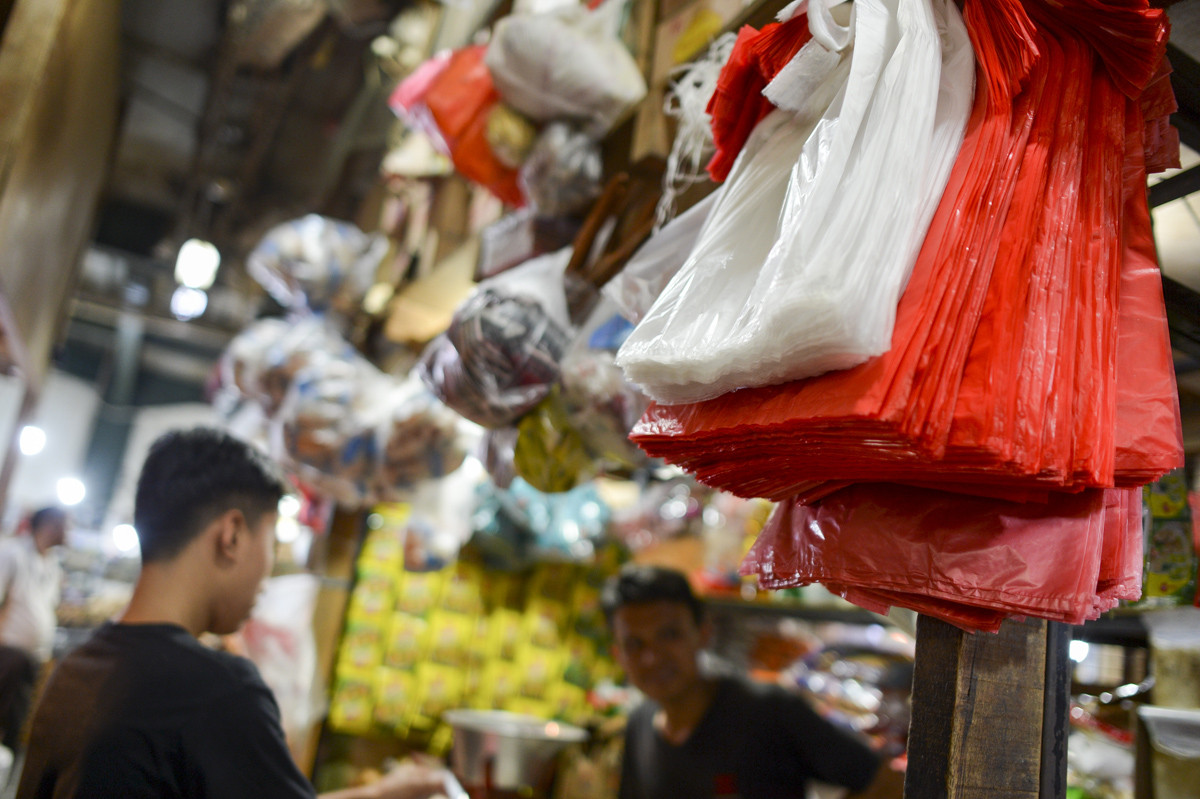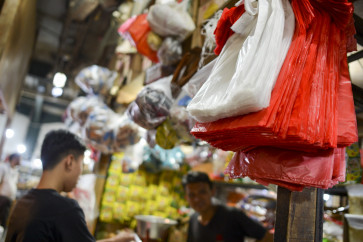Popular Reads
Top Results
Can't find what you're looking for?
View all search resultsPopular Reads
Top Results
Can't find what you're looking for?
View all search resultsJakarta tests plastic-free lifestyle
Plastic bags used to carry groceries at traditional markets are part of a larger waste problem in the capital. According to Pasar Jaya, its 153 traditional markets generated daily waste of up to 600 tons, 12 percent of which was plastic bags.
Change text size
Gift Premium Articles
to Anyone
D
espite the convenience that a single-use plastic bag offers, starting small by refraining from using one might help improve the persistent plastic waste woes plaguing Jakarta, activists and the Jakarta administration have said in a campaign to promote a greener lifestyle.
The Indonesian Plastic Bag Diet Movement (GIDKP), a national movement advocating for the reduction of plastic bag use since 2013, in cooperation with the South Jakarta administration, the Jakarta Environment Agency and city-owned market operator PD Pasar Jaya, has recently launched a trial program aimed at phasing out the use of plastic bags.
The campaign follows the 2019 Jakarta gubernatorial regulation issued in December on the mandatory use of eco-friendly shopping bags in which the city will impose a ban on single-use plastics at shopping malls, supermarkets and traditional markets in July.
"Consumers are key. All consumers are expected to bring their own shopping bags," GIDKP executive director Tiza Mafira said at the launch of the program at West Tebet Market, South Jakarta, on Friday, adding that the group and the city administration had teamed up to raise public awareness on the matter.
Jakarta joins Banjarmasin in East Kalimantan, Denpasar in Bali, Bogor in West Java, Balikpapan in East Kalimantan, Semarang in Central Java and Bekasi in West Java to issue a regulation phasing out the use of the single-use plastic bags, commonly known as kresek, at shopping centers and traditional markets.
Plastic bags used to carry groceries at traditional markets are part of a larger waste problem in the capital. According to Pasar Jaya, its 153 traditional markets generated daily waste of up to 600 tons, 12 percent of which was plastic bags.
There were 14 vendors selling plastic bags at West Tebet Market. During the trial program, GIDKP was offering eco-friendly shopping bags for Rp 5,000 (36 US cents) apiece to the vendors as a substitute.


















